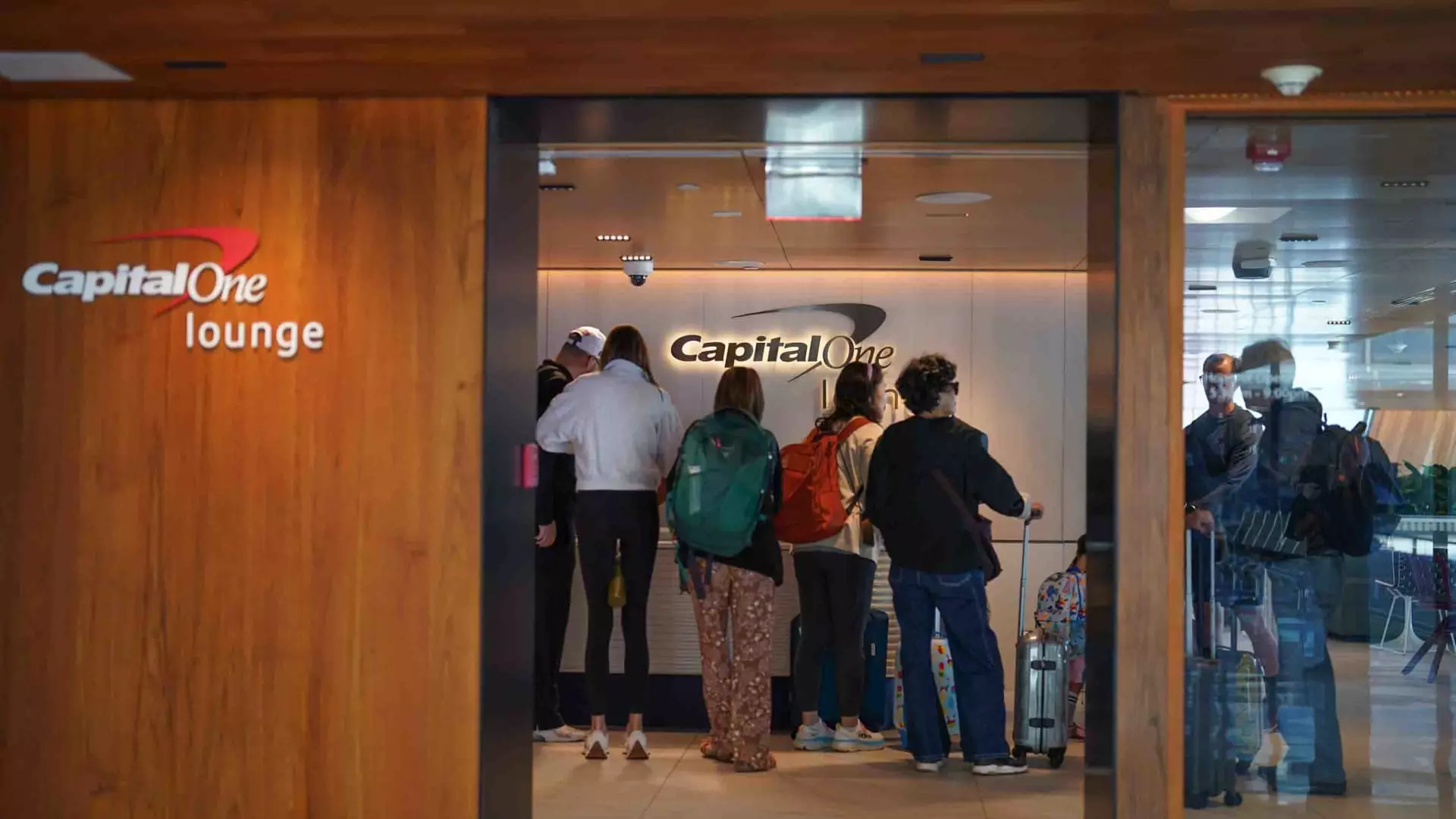Once upon a time, the journey to relaxation in an airport lounge was a glorious ritual that promised comfort and tranquility amidst the chaos of travel. However, as the landscape of air travel transforms, this luxurious experience is rapidly becoming a privilege that few can afford. The recent decision by Capital One to impose strict limitations on guest access in its airport lounges symbolizes a daunting trend that raises troubling questions about the balance between exclusivity and accessibility in travel.
With escalating costs for lounge access and the new requirement of a substantial annual fee for additional guests, this move serves not only as a means to combat overcrowding but as a catalyst that fundamentally alters the essence of lounge membership. For countless families and friends traveling together, the soaring expenses associated with lounge access contradict the very ideals of travel that are supposed to be about connection and shared experiences.
The Price of Popularity
As airport lounges have surged in popularity, credit card companies have clamored to expand their offerings, often portraying lounge access as a premium benefit tied to sky-high annual fees. Capital One’s recent announcement underscores that even the most celebrated consumer perks are not immune to the pitfalls of popularity. The quote from Capital One regarding the importance of maintaining an excellent experience is a classic case of corporate speak tangling with customer dissatisfaction; many customers are left pondering if luxury travel is only meant for those willing and able to throw money at it.
The staggering requirement of spending $75,000 annually to access complimentary guest privileges epitomizes a troubling elitism that is seeping into the travel space. Such an expectation serves only to widen the divide between the haves and have-nots in today’s society. Instead of inclusiveness in travel experiences, we are left with a landscape where wealth dictates comfort and convenience, leaving the average traveler to grapple with overcrowded lounges that have become painfully reminiscent of the very terminals they aim to escape.
A Challenge for the Underdog
Capital One has often positioned itself as a challenger in the market, vying to carve out a niche in a highly competitive space traditionally dominated by major players like American Express and Chase. However, with their new policies, it whimsically alerts us that even the underdogs can ascend to a confusing height of privilege. While they may boast lower annual fees compared to their more established rivals, their draconian measures for guest access undermine this advantage sharply. Henry Harteveldt’s remarks about lounges becoming victims of their own success are strikingly accurate; they risk alienating the very customers who flocked to them in search of solace amidst the travel frenzy.
By restricting access, Capital One inadvertently invites an introspection on what customer loyalty truly means in today’s hyper-capitalistic society. Are we to believe that we must shell out exorbitant sums just to enjoy basic comforts at a time when the very act of traveling has become a logistical nightmare?
Airlines and Lounges: A New Normal
The airline industry has mirrored these changes, with companies like Delta and American Airlines engaging in a similar tightening of access. Long-gone are the days of carefree access to lounges; it’s now a tactical battle of who has deeper pockets. The shift towards creating larger, more exclusive lounges highlights a paradox: as access becomes more limited, the demand for comfort remains insatiable. Travelers are left scrambling for refuge in a space that is supposed to alleviate their stress, turning lounges into overcrowded waiting rooms rather than havens of luxury.
Ultimately, Capital One’s new lounge access policies reflect a larger societal issue—one that prioritizes wealth over experience. What was once a cherished aspect of travel is at risk of devolving into a microcosm of apartheid-like privilege. The industry’s silence on the repercussions of these policies is concerning, leaving many to wonder what the future holds. As travel becomes more expensive and exclusive, those enthusiastic about the culture of air travel must grapple with a jarring transformation that seeks to normalize the unattainable.

